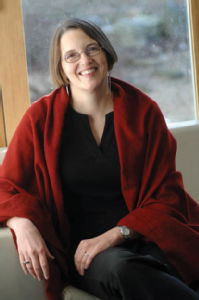Associate Professor Roberta Bivins from the Department of History looks back on Europe's refugee crisis history in light of the current migrant crisis
 As Europe experiences its most dramatic and large-scale refugee crisis since World War Two, one thing is clear. We have learned little from the past. No surprises there; the truism that ‘history repeats itself’ draws its power precisely from situations like these. But as a historian of migration and medicine, it strikes me that there are some relatively simple and well-documented lessons European governments could learn. When I look back to the immediate post-war period, I see practices and responses to human displacement – then, as now, on a tragically massive scale – that were successful and humane, and others that were disastrous and damaging.
As Europe experiences its most dramatic and large-scale refugee crisis since World War Two, one thing is clear. We have learned little from the past. No surprises there; the truism that ‘history repeats itself’ draws its power precisely from situations like these. But as a historian of migration and medicine, it strikes me that there are some relatively simple and well-documented lessons European governments could learn. When I look back to the immediate post-war period, I see practices and responses to human displacement – then, as now, on a tragically massive scale – that were successful and humane, and others that were disastrous and damaging.
In the wake of the Second World War, massive camps sprang up or were created to house ‘DPs’ – a curt abbreviation for the chilly but legally neutral ‘displaced persons’. Like today, most were on Europe’s eastern borders, in countries coping with significant economic burdens and deeply engrained ethnic tensions of their own. These post-war refugee camps were better than nothing – but, also like today, often not much better. Their inhabitants were provided with marginal shelter, and a diet that in too many cases offered fewer than 1500 calories a day. Unsurprisingly, camp inhabitants were desperate to escape, and to build lives for themselves in safer and more promising environs.
Many took desperate decisions based on partial or inaccurate information – myths and rumours – that filtered down to them through informal networks, contradictory political claims, and an international media whose accounts reflected often-parochial national debates. From these camps, nations rebuilding from a devastating war selected individuals or groups to welcome as migrant workers. Individual tragedies were rife. Families were shattered by the self-interests of nation states searching for strong backs and skilled hands, but not the communities that created them. All too often the sick and the elderly were left behind, screened out of a Europe (and indeed, a developed world – Australia and the United States, despite their booming economies and vast expanses, were even more selective) eager to eradicate contagious diseases, and to gain economic advantage at the lowest possible social price.
Yet despite its flaws, we can learn from the postwar response: there were successes -- as well as failures -- of conscience, of organisation, and of practice in the DP camps. What were these?
- First, although the camps were located in Europe, the problem was (albeit sometimes grudgingly) acknowledged to be a global one. Refugees were offered homes not only in western Europe, but in stable nations as distant as Central and South America, and the Antipodes. The communities seeded after World War Two are today often thriving and significant contributors to the wealth, diversity and development of their host nations.
- Second, the UNHRC in particular took an active role in defusing and de-politicising international debates about how to response to the crisis. As we look at the current intra-European squabbles, the need for such a respected neutral party becomes ever more visible.
- Third – and here I draw particularly on the British case – at least some nations accepting groups of refugees recognised that their immediate physical needs on arrival would be matched by emotional and cultural needs. Medical inspections and on-site clinics by resident or visiting staff meant that inhabitants’ medical needs were met, while local fears about imported disease were eased. Efforts were also made to encourage the preservation of their own cultural identities, while preparing them for entry into British daily life. Yes, these efforts could be ham-fisted, even smug. We could do better today – if governments take this need as seriously as they should.
- Moreover, at least initially, Britain’s post-war leaders recognised the need to allay local anxieties about the distribution of scare resources in a time of austerity. While the European Voluntary Worker camps and hostels in Britain were (often) physically unwelcoming and oddly sited, they visibly did not colonise and deplete scarce local resources: communities could see that they lost little by hosting the newcomers. Equally, while dispersal of refugees on arrival may seem like an answer to the potential for local tensions, we must also recognise the positive role that ethnic communities (both established and newly arrived) played – and could play again – in supporting each other, and enabling newcomers to adapt and thrive.
25 September 2015
Further Information:
Melissa Holloway
Melissa.Holloway@warwick.ac.uk
Assistant Press Officer, The University of Warwick
Tel: 02476 (5) 75601 International +44 2476 575601
or
Alex Buxton
Communications Manager, The University of Warwick
Tel: 02476 (1) 50423
Mob: 07876 218166
